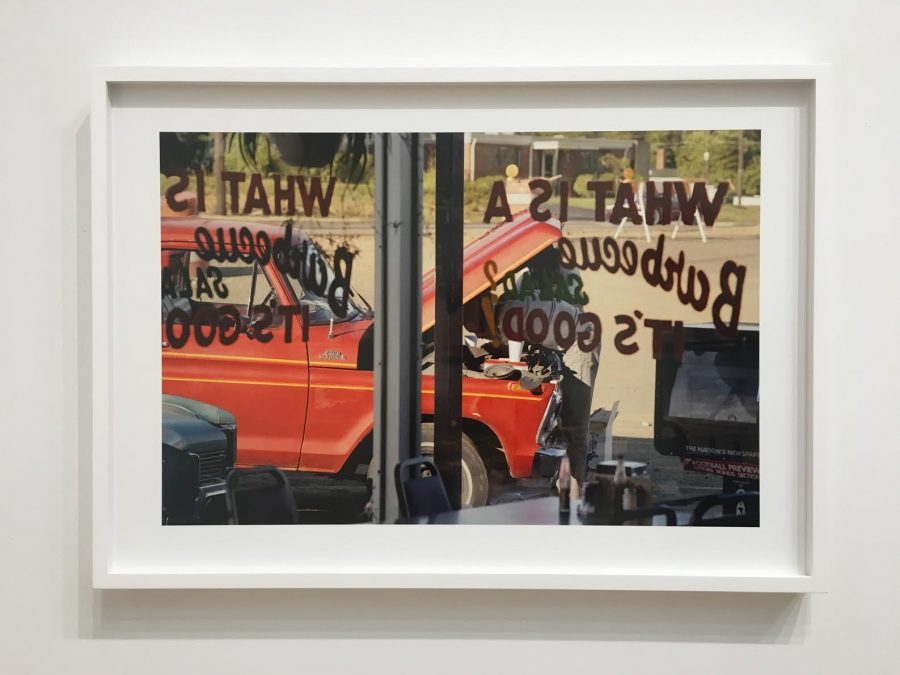‘Democratic Forest’ Asks What Story We Want
Photo by Emily Conklin, Art by William Eggleston
“Untitled,” from Eggleston’s The Democratic Forest.
November 16, 2016
During this time of deep national divide, William Eggleston’s collection of over 40 photographs — some never before exhibited — embodies the artist’s view of his democratic vision of the camera and what it is capable of creating. The exhibit at the David Zwirner Gallery, titled “The Democratic Forest,” is a monumental project that offers dramatic juxtapositions and a unique analysis of superficiality in America. It presents an analysis that transcends mere aesthetic appeal by forcing viewers to confront their own personal fabricated realities.
Taken throughout the southern and eastern United States, Eggleston’s photos touch on themes of brand, nature and artificiality. Often focusing on the brilliant hues of condiment labels or automobile paint, the collection of photographs as a whole creates a delicious color palette of modern Americana. From the neon lights of a roadside diner to the too-green vibrancy of a turf soccer field, Eggleston’s perspective peels back the layers of idealism within the American dream and presents its reality through his democratic lens.
No longer do urbanized Americans seek out the true nature of the countryside. Instead, artificial paradises are created within closed borders, ignoring a reality closer than one would like to imagine. A backyard pool, for example, seen through Eggleston’s lens, is unnaturally blue and surrounded by false plastic grass and rubber beach balls. While the chlorinated pool may seem like an oasis in the heat of a southern American summer, just beyond the wooden fence lies the vast expanse of a steaming black asphalt parking lot. Photographs like this illuminate the idea of the false reality that most Americans live in. How close must the ugly truths of the other side of the fence come to our havens before we are forced to acknowledge them?
This week, the same country that Eggleston photographed reveled in great swaths of red. Those citizens with cooler-paletted minds saw the truth of a hidden reality breaking the thin barrier that Eggleston exemplifies in his works. The vibrant colors of America still shine bright, yet its collective failures and ignorances are visible in the cracks through which the not-so-silent majority is now seeping through.
“The Democratic Forest” celebrates the often-overlooked presence of the rural, the simple and the timeless. Eggleston’s photographs are a peaceful way to take pride in the hidden corners of the United States — his testament to a way of life unacknowledged by many. However, this clear praise of the American dream within the collection is accompanied by an underlying yet sharp criticism. On the surface, the colors and the scenery can seem comforting, but if one takes a closer look, the old-fashioned lifestyle is shivering on the brink of the modern, global world. It is the families with the unnaturally blue pools and the owners of the Coca-Cola-sponsored diners that must decide which way they wish their future — as well as the future of their country — to go.
Despite the fact that Eggleston’s photographs were captured 30 years ago, the tensions they present are still very relevant today. They paint a portrait of an America that many do not wish to see and mask by idealizing their own realities. “The Democratic Forest” and its aesthetic are timeless, but viewers must look with a critical eye. Is the Eggleston story of 30 years ago the story we wish to tell today? These photographs demand a societal shift toward unity, strength and a universal skin thicker than the backyard fence.
Email Emily Conklin at [email protected].























































































































































